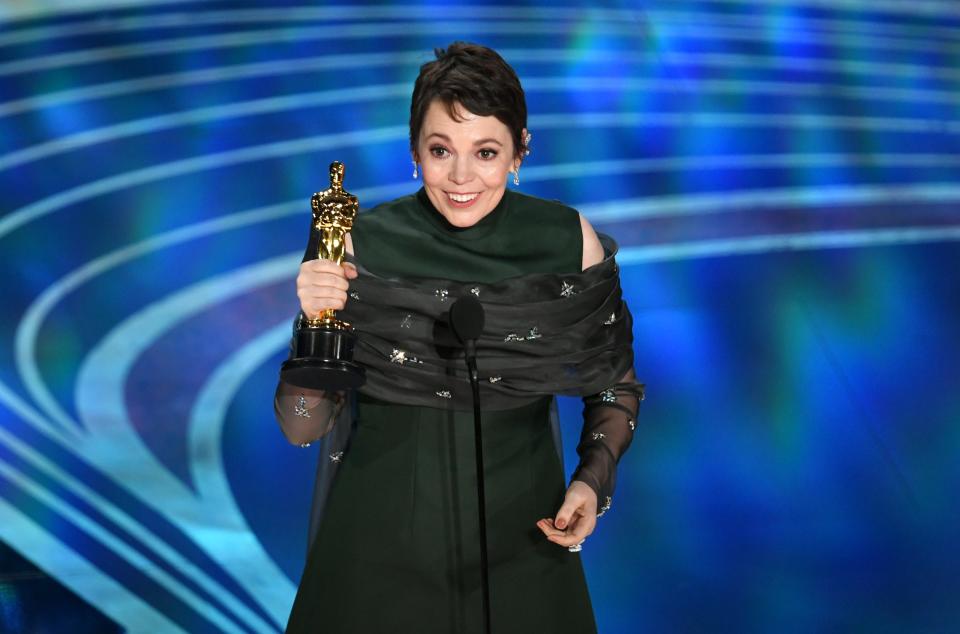Olivia Colman says she'd be earning 'a lot more' if she were 'Oliver Colman' as she opens up on the gender pay gap
Olivia Colman opened up about the gender pay gap in the film and television industry.
She told CNN's Christiane Amanpour that execs make excuses not to pay women as much as men.
She noted one example where a male actor was paid 12,000% more than his female counterpart.
Olivia Colman opened up about the gender pay gap in the film and television industry in an interview on CNN's "The Amanpour Hour," saying she would make "a lot more" if she were a man.
The Oscar-winning actor, 50, said: "Don't get me started on the pay disparity, but male actors get paid more because they used to say they draw in the audiences."
"And actually, that hasn't been true for decades, but they still like to use that as a reason to not pay women as much as their male counterparts," she added.
Christiane Amanpour then asked the "Crown" star if she'd experienced pay disparity herself.
"I'm very aware that if I was Oliver Coleman, I'd be earning a fuck of a lot more than I am," Colman said.
"I know of one pay disparity, which is a 12,000% difference," she added.

Colman is the latest in a string of Hollywood stars to call out wage differences between male and female stars.
In December, "The Color Purple" actor Taraji P. Henson said she almost gave up acting because of how much she was being underpaid as a Black female actor.
Speaking with on SiriusXM, she said: "I'm just tired of working so hard, being gracious at what I do, getting paid a fraction of the cost."
In her 2016 memoir, "Around the Way Girl," Henson said she was paid "less than 2%" of what her costar Brad Pitt got for her Academy Award-nominated role in David Fincher's "The Curious Case of Benjamin Button."
Meanwhile, in 2022, "Jurassic World" star Bryce Dallas Howard told Business Insider she was paid "so much less" than costar Chris Pratt.
However, she praised Pratt for advocating for her to receive better compensation for other franchise opportunities that were not already contractually binding.
Read the original article on Business Insider


